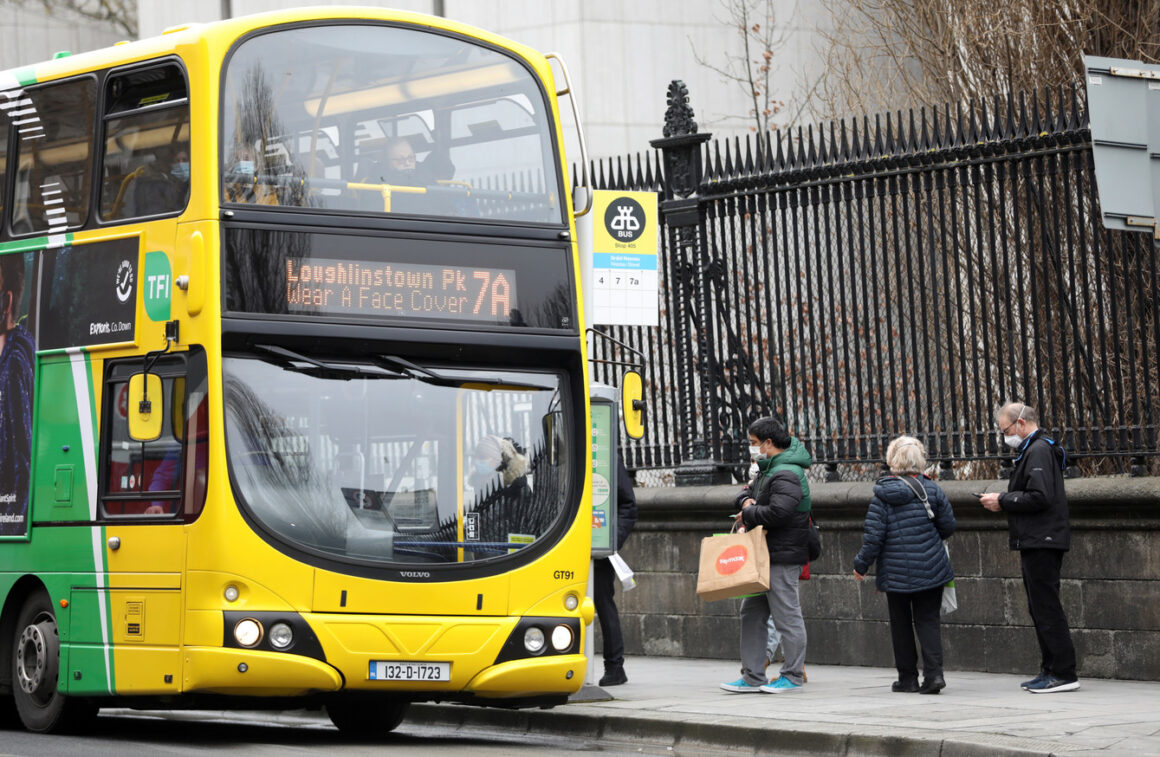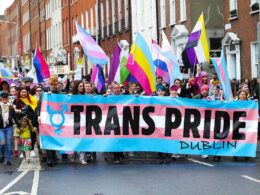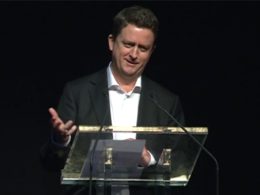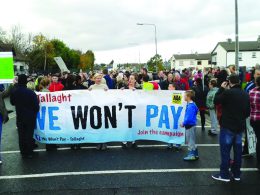By Finghin Kelly
Green Party Transport Minister, Eamon Ryan, this week presented to Cabinet the findings of a report by the consultants Ernst and Young (EY) which was commissioned by the NTA. The report amazingly recommended against the extension of free public transport and instead argued for regressive, right-wing policies such as congestion charges and massive hikes in parking charges.
Since its publication the Green Party has gone on an offensive against the idea of free public transport being rolled out, with various elected representatives being lined up in the media to attack the idea and back up this report.
This is their counter-attack to the increase in support for the demand due to the impact it would have on the cost of living, but also more and more people seeing the need to have a more sustainable transport system as part of the fight against climate change, which the Green Party would be expected to recognise and therefore support.
Instead, the lack of ambition of the Green Party’s environmental policy — in reality, its capitulation to a policy of accepting runaway climate change — is exposed once again. Of the radical changes needed to actually halt climate change, free public transport is a necessary but relatively minor one.
Yet the Greens have shunned it, and have done so using the most spurious argumentation.
The logic of profit over need
Many countries and cities around the world have implemented free or very cheap public transport. The effects have been clear: reduced carbon emissions, fewer cars on the roads, and more people being able to travel.
In Dáil exchanges the Green Party’s Eamon Ryan has rejected all of this, by referencing the NTA report. The NTA is in fact under Ryan’s remit as Minister for Transport. It is no surprise, therefore, that it came out against free public transport.
A close look at the report shows they really went out of their way to find arguments against it. For example, to their shame, they include among the costs of public transport the costs of absenteeism and ill health by people potentially walking less! Talk about clutching at straws.
The report also states that free public transport would incentivise “excessive travel”. This is a ridiculous concept. It is as if people will just jump on buses and trains for the fun of the trip!
In reality, they don’t want public funds assisting people taking trips that are not economically advantageous for business. They see people travelling to visit family, friends, to engage in a hobby, and generally have a life outside of work as being ‘excessive’.
Regressive policy
The essentially Thatcherite nature of the EY report, and all of the government’s arguments around this, is also clear. The report doesn’t support free public transport because it says it would create difficulties for private transport companies trying to compete. This shows that their whole premise is that public transport needs to be a commodity, and to be profitable for private investors.
This is the same logic that dictates that rural communities get next to no service, and which prevents major capital projects like a metro to Dublin Airport, or the expansion of the DART. This profit maximisation logic needs to be rejected.
The EY report does not just reject free public transport, it also seeks to hit people with the stick of congestion charges and 400% increases in parking fees. What will the effect of this be? It will mean yet another unfair charge on low- and middle-income workers who will be hardest hit, while the wealthy barely notice.
It will also hit those who need to carry out essential trips with a car, for example those with mobility issues, or those with jobs that require a car or van.
They also have car parking spaces at workplaces in their sights. Most people driving to work are not senior, pampered management, but in the main people who work in places with poor public transport, or poor transport at times that people need to work, such as in retail, hospitals, construction and manufacturing. These issues have been highlighted by workers in Liffey Valley Shopping Centre in Dublin who have taken protest action against the imposition of massive parking charges on workers in the shopping centre.
A vital climate policy
Transport is one of Ireland’s largest polluting sectors. It accounts for 18% of Ireland’s carbon emissions. This is because of decades of neglect and underinvestment in public transport which is forcing people to rely on cars.
Green Party reps have had the gall to argue that free public transport wouldn’t work because the system is currently not fit for purpose, but it’s as if they are not part of the government responsible for this sorry state of affairs! The Greens in fact have a woeful record of actually cutting public transport. Eamon Ryan, when last a minister in the FF / Green / PD government, took 290 Dublin Bus buses off the road and cut the number of drivers by 120!
To get people out of cars we need to see measures like free public transport combined with massive investment in transport to transform the network in terms of its reach, its frequency and its quality. This is vital if there is to be a substantial switch away from cars, which is an urgent necessity.
Such an investment would need to see an expansion in tram lines in Dublin and all the major cities, construction of rail lines and infrastructure, more buses on more routes, and a real rural public transport system in every corner of the country. Such a level of investment would have to be based on public investment, funded through progressive taxation.
Instead of engaging in this type of investment the government is actually spending less than half pre-2009 levels, and as a result is extremely unlikely to meet its own targets of reducing pollution from transport by 51% by 2030. In short, this government is failing abysmally in its climate policy, which is a timely reminder of the uselessness of the Green Party.












